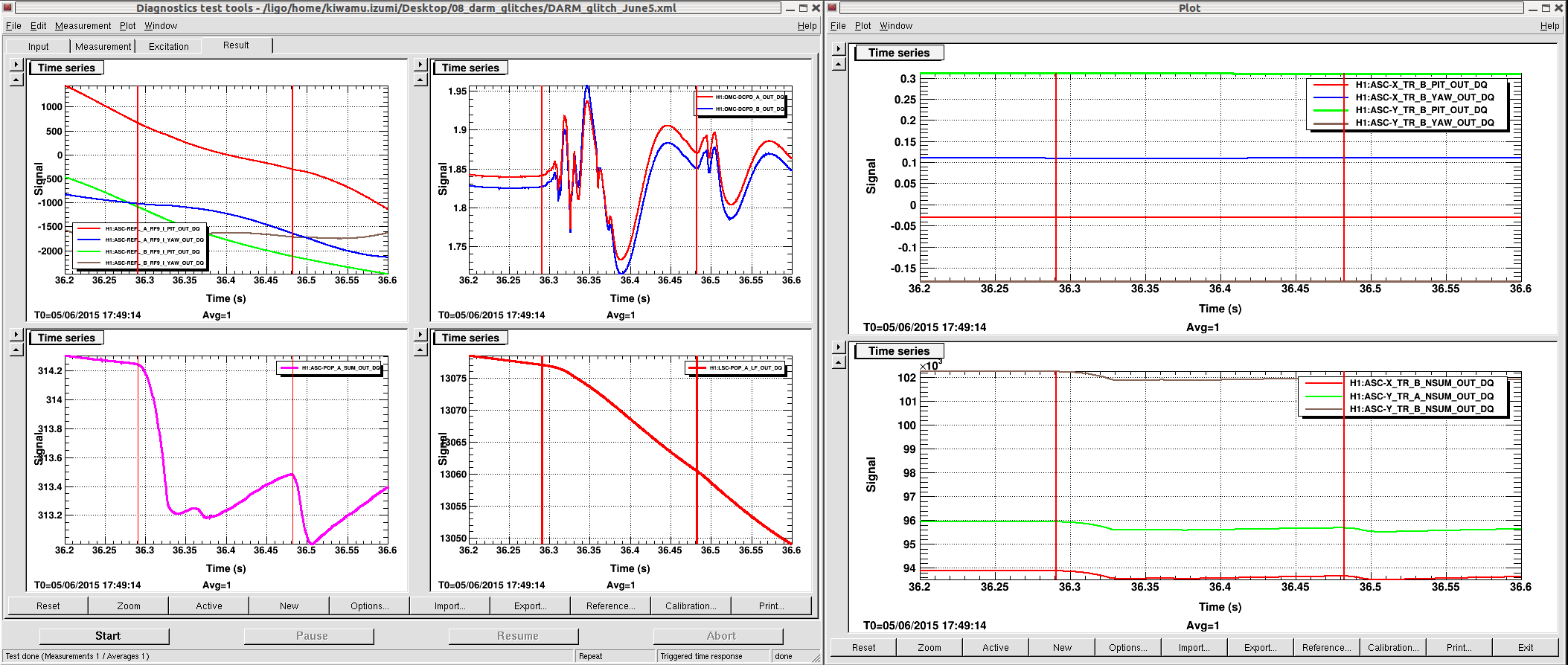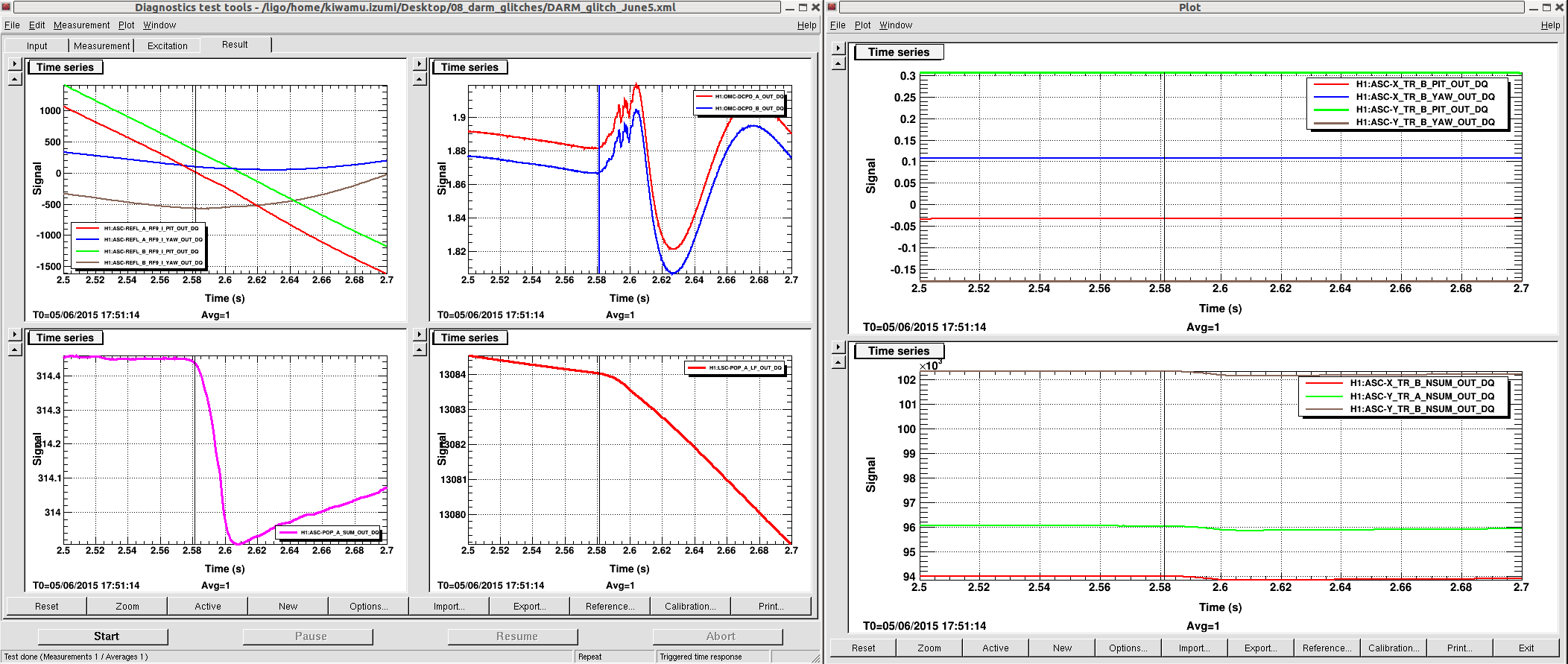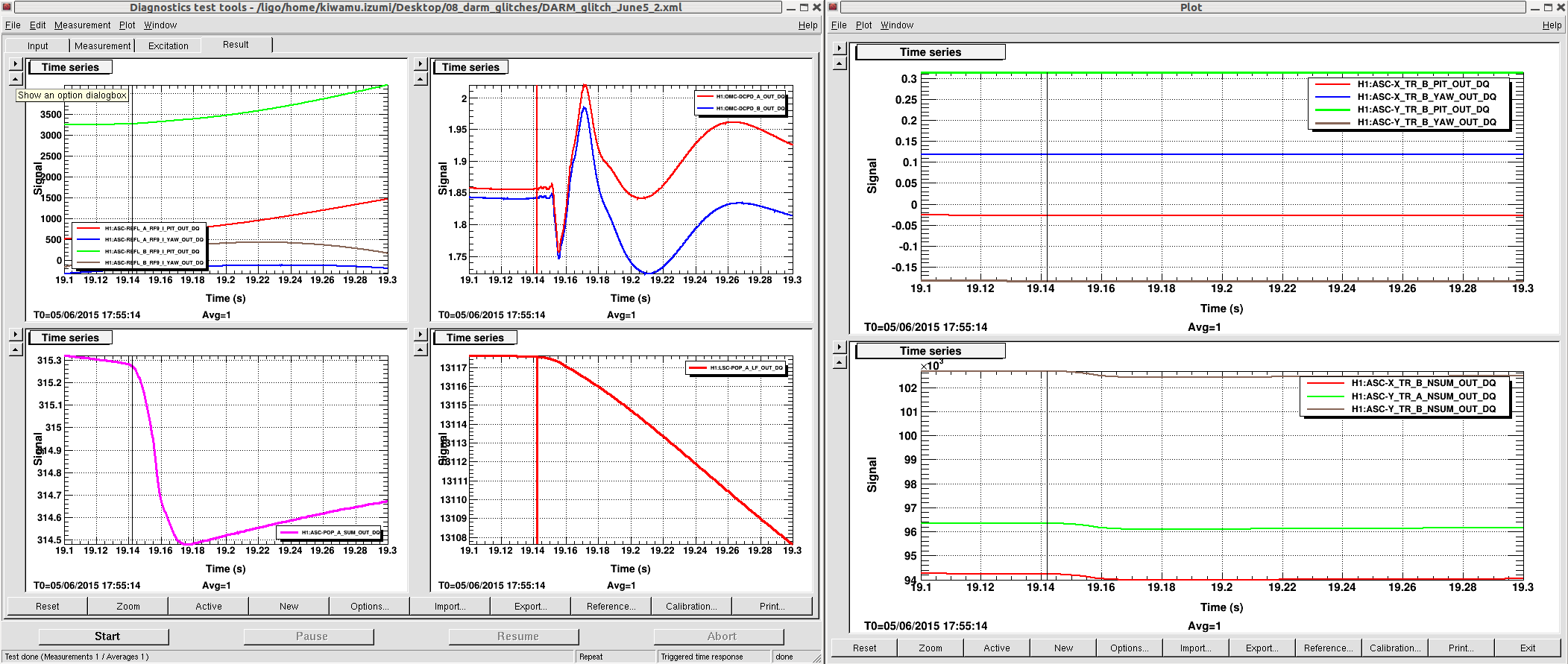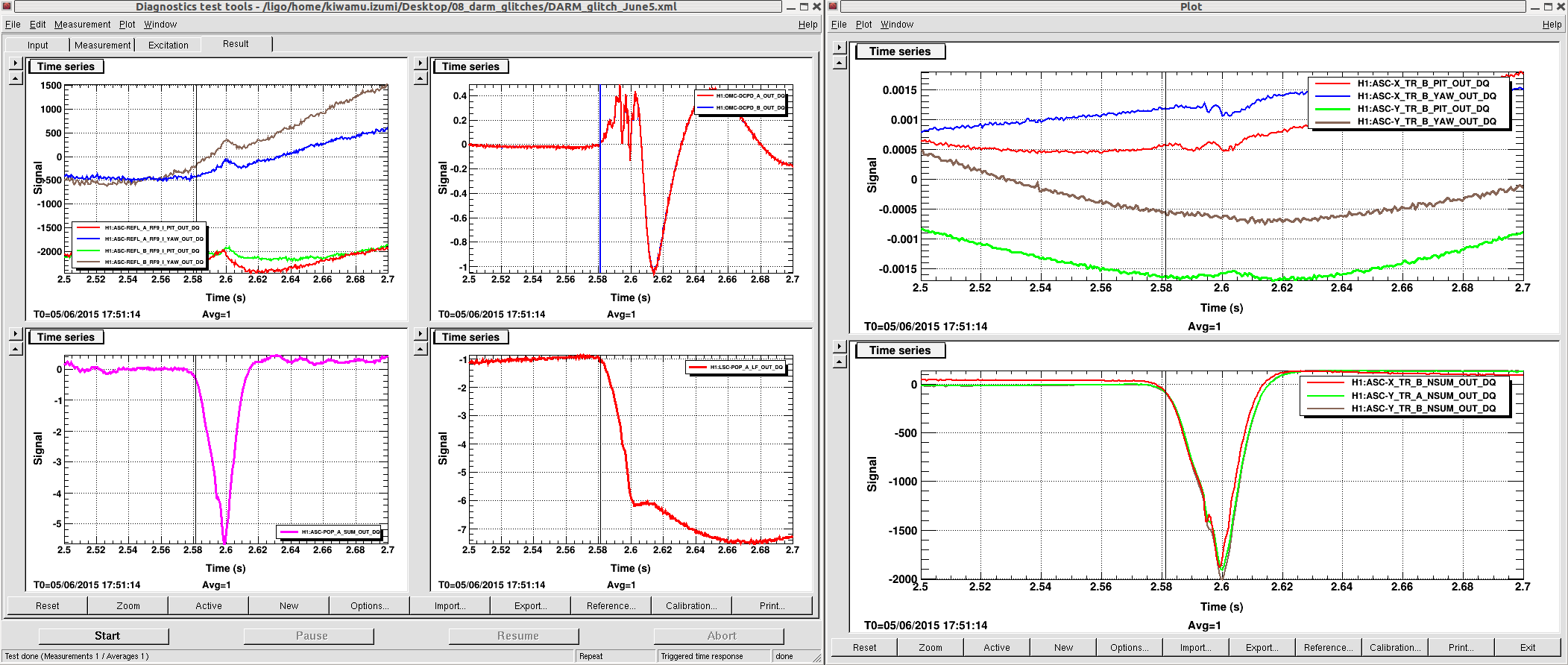Stefan, Kiwamu,
In this morning, DARM had many numbers of glitches which were visible in the DARM spectrum as wide band noise. We looked at various channels to see what caused the glitches, but we were not able to identify them.
We would like to get some help from the detchar people. Could you guys please look for a cause of the DARM glitches ?
The lock stretch which had a high glitch rate is the one starting at 2015-06-05 17:17 -sh to 18:00 -ish UTC. I attach an example time series of the glitches shown in OMC-DCPD A and B. We know that some of the loud ones were so large that they saturated the ADCs of the OMC DCPD.
Note that in the same lock stretch, we changed the DARM offset multiple times which changed the amount of the carrier light resonating in OMC. We do not think our activity with the DARM offset caused the high glitch rate.
Here is also a DARM spectrum and time series, as well as the summary page range graph. The glitches occur in the short science segment just before 18h.
We need to do some more thorough follow-up, but I can give some quick feedback that might give some hints. The initial signs seem to suggest that the problem might be due to input pointing glitches or alignment fluctuations in the PRC.
The loudest glitches in that short science segments were coincident with ASC-REFL_A_RF9_I_PIT_OUT_DQ, which looks like it was being used as the error signal for INP1 and PRC2 loops, feeding back onto IM4 and PR2. The corresponding YAW channel was also significant, but not quite as much so. We also saw ASC-REFL_B_RF9_I_PIT_OUT_DQ as somewhat significant, which looks like it was being used in both the INP1, INP2, and PRC2 loops and feeding back on IM4 and PR2.
So, we now start believing that these loud glitches were related to the cleaning activity on the X arm vacuum tube (alog 18992). Here I show glitch wave forms in time series from three glitch events (out of many) that were observed in this past Friday, 5th of June.
Typically the glitches were very fast and I am guessing that the glitch itself happens on a time scale of 10 ms or maybe less. Usually the OMC DC signals or the DARM error follows with a relatively slow oscillation with a period of roughly 100 msec which I believe is an impulse response of the DARM control. All the three events showed a power drop in the carrier light everywhere ( TRX, TRY and POP) indicating that the power recycling gain dropped simultaneously. For some reason POP_A_LF showed slower power drop which I do not understand. Also, in all three events that I looked at, the OMC DCPDs showed small fluctuation roughly 20 ms before the big transient happens.
1. 2015-06-05 17:49 UTC
(This one contains two glitch events apart only by roughly 200 msec)
2. 2015-06-05 15:51 UTC
3. 015-06-05 17:55 UTC
4. High passed version of glitch event 1
(all the time series are high-passed with zpk([0], [40], 1) ). You can see a glitchy behavior in REFL WFS (as reported by TJ) as well as TRX QPD (and a little bit in TRY QPD).










